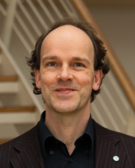Buddhism in the West
Project overview
Unlike in traditional Buddhist countries, Western Buddhism does not reproduce itself in monastic contexts, but primarily as a lay movement. Furthermore, it encounters a highly individualised and differentiated society whose value horizons can no longer be easily integrated into overarching moral and cosmological horizons.
Although there are now a large number of studies on the phenomenon of so-called Western Buddhism, there are very few studies on the question of what people from developed Western associations actually do when they commit to a Buddhist path of practice in the long term and how they can harmonise this with modern lifestyles.
The research project is dedicated to 6 training paths from German-speaking countries with regard to their institutionalisation and the specific forms of practice of their adepts. In the sense of a multiple comparative analysis, both the development dimension (novices, moderately as well as existentially committed students and long-term practitioners) will be taken into account as well as different traditions (2 schools each from Tibetan Buddhism, Zen Buddhism and Theravada Buddhism). In the sense of a practice-theoretically oriented sociology, close reference is sought to the respective practices of the investigated actors as well as to the specific forms of institutionalisation of the teachings. Contrary to the usual self-stylisation of experience-oriented spirituality, Buddhist cognitive practice is thus viewed in multiple senses as a phenomenon that is both communally and socially embedded.

Dai-Seishi Bosatsu (Photo: Museum of Asian Art, Berlin | Sara Vogd-Sanchez)
Further information

- Duration: 2013 - 2020
The Buddhism in the West project was launched in 2013 with the subtitle "A practice-theoretically informed reconstruction of Buddhist training institutions in German-speaking countries" and was followed by a follow-up project in 2016. This is entitled "Habitus transformation through Western Buddhism? A longitudinal study informed by practice theory". - Funding: German Research Foundation (DFG)
- Responsible: Chair of Sociology
- Academic staff: Dunja Batarilo, Dr Jonathan Harth, Dr Ulrike Ofner
The practice of teaching
In our first major publication, we focussed primarily on Buddhist practice ("Praxis der Leere. On the embodiment of Buddhist teachings in experience, reflection and teacher-student relationships").
Research in religious studies and sociology of religion often loses sight of the fact that Buddhist teachings are soteriological systems. The Greek term soteria means salvation, redemption and salvation. But what does this salvation consist of and how does it relate to a practice that claims to regard all sensual phenomena as essentially empty?
The result is a reflexive and mutually constitutive relationship between the teaching system, the experiences induced in communal practice and the respective institutionalisation form of the training path. Contrary to the usual self-stylisation as an experience-oriented spirituality, Buddhist (self-)cognition can thus be seen above all as a communally and socially embedded phenomenon.

Book cover: Die Praxis der Lehre
Project management

Univ.-Prof. Dr.
Werner Vogd
Chair holder
Faculty of Health (School of Medicine) | Chair of Sociology
Alfred-Herrhausen-Straße 50
58455 WittenRoom number: C-2.329